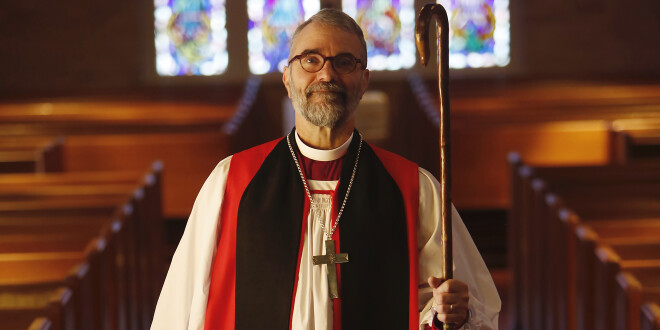Communion Matters XII: The Elements of Communion 1: the Council

To review, this year-long series, from a variety of angles, aims to make one point: that our identity as Episcopalians, which is to say Anglicans in the United States in communion with Canterbury, is global. Communion in both the most immediate and the most expansive senses, is not an optional add-on, but constitutive of who we are as Christians. And in this regard we have a rich and specific history about which we benefit by knowing.
What holds us together as a Church, a people, beyond those social bonds true of any social organization? The most important ‘ties that bind’ are simply Christian, and so are true for us as well as Christians of other traditions: the Scriptures, (for most, the Creeds by which to interpret them), the water and bread and wine, and some kind of ministry. (In our case the latter takes the widespread and traditional form of the three-fold ministry of bishop, priest, and deacon). But what things have served to hold us together as Anglicans, across cultures? In these seven blog entries we will consider some of the ligaments that have, or should, hold the Anglican Communion together.
Taking counsel is found from the earliest time in the New Testament- the apostles finding a replacement for Judas for example, and Jerusalem Council in Acts 15 to resolve issues over the place of Gentile believers. These in time came to take place at more local and more general levels; longevity and ubiquity of teaching mattered (though it sometimes required a debate to figure out if there actually was continuity of teaching, as with the Arian heresy which our Nicene Creed is responding to). In later centuries councils became less frequent, though the need for them was felt in the later medieval period, to purify the Church of corruptions. This came to be called the conciliar movement, and even in the Reformation period there were (unsuccessful) calls for a council to resolve differences.
In the Reformation period the emphasis on the national nature of Churches was emphasized, especially in resistance against control by Rome. The newly protestant churches shared teaching (though they fought as well). In the 18th century, nascent churches began in new places in the world where trade took people, especially as ministries grew out of chaplaincies (for example in India), or immigration (for example in the Americans colonies). But in the 19th century, new churches also sprang up as a result of deliberate missionary work (especially in Africa, Asia). In each case there was an assumption of ‘national churches’, though this sometimes proved more difficult than it seemed. In the later 19th century, disagreements among Anglicans (for example over issues like polygamy in the surrounding culture, as well as debates over the episcopate), led to a sense of the need to consult, more widely, as Anglicans. The resistance to anything resembling Roman Catholic structure ensured that these councils would be more informal and advisory, though they did have considerable influence. The best example of this is the Lambeth Conference of bishops from across the world. They have gathered every decade since 1867 (though sometimes delayed by things like world wars and pandemics!). While the Conference (which will gather again in August) does not determine doctrine, it does provide an opportunity to ‘take counsel together,’ and it does influence teaching over the long-haul.
It is, by the way, in this context that the proposal of a (voluntary) Anglican Covenant was made, according to which Churches that chose to hold themselves accountable to one another, could have disputes adjudicated by taking counsel with one another. This proposal came to be caught up in the political maestrom that ensued, but the idea of a council that combined choice on the part of a national church, and accountability, seemed very Anglican. We find something similar in the more recent proposal for a Covenant by Churches of the Global South. This may in time provide the impetus for the kind of deliberation over time that questions of doctrine, morals, and culture require.
The question of a Church council leads to several more themes of Anglicans in Communion, which I will consider in the next post.



